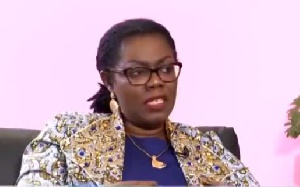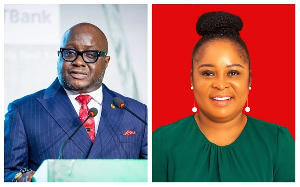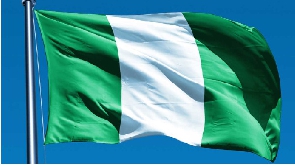Minister of Communications, Ursula Owusu Ekuful, has indicated that the current Akufo-Addo administration has erected 200 rural mobile telephony sites across the country within two years.
The move, she said, formed part of efforts by government to achieve its digitisation agenda aimed at bridging the digital divide between rural and urban Ghana.
She disclosed this on Monday, September 10, at the Global Ministerial Roundtable on efforts to ensure the development of Information Communication Technology (ICT) and telephony to expedite the socio-economic development of Ghana.
The International Telecommunications Union (ITU) World Conference held in Durban, South Africa sought to accelerate ICT innovation for socio-economic development through solutions, sharing knowledge and networking with measures to develop and protect local intellectual property.
The Minister said that a paltry 117 rural telephony sites were constructed across the country from 2006 to 2017.
Speaking at the ongoing International Telecommunications Union (ITU) World Telecom Conference in Durban, South Africa, Mrs Owusu-Ekuful said that “in 2017 alone 100 rural telephony sites were constructed and activated in over 500 communities where access to mobile signals was not previously available.”
According to her, the government has already completed 80 rural telephony sites, this year, and that it’s on course to adding extra 200 sites before the year ends in partnership with MTN and Huawei.
The partnership, she stated, would involve the deployment of voice and data connectivity as well.
“We are making significant strides on this journey, and are determined to find an affordable, easily deployable solution to extend connectivity quickly as possible.”
Mrs Owusu-Ekuful said bridging the wide digital divide is crucial to the country’s socio-economic development.
She said “the widening digital gap was as a result of the growth in teledensity in urban areas fueled by mobile technological uptake plus the consideration by the network provider that the extension of connection to the rural areas is not commercially viable.
Reiterating the government’s commitment to changing the narrative, Mrs. Owusu-Ekuful said a deliberate agenda to digitize Ghana with an ambitious technological programme of infrastructural development, national broadband infrastructure and connectivity with the unserved and underserved at the heart of the agenda is being vigorously pursued.
“The government of Ghana has recognized the importance of connectivity for socio-economic development,” she told the gathering at the ITU World Telecom Conference.
“It’s imperative that all citizens benefit from the opportunities presented by digitization.”
According to her, as government scales up its digitization effort, the Ghana Investment Fund for Electronic Communications (GIFEC), which is mandated by law to provide financial resources for the establishment of universal service and universal access to all communities and to facilitate the provision of access to basic telephony, internet services, multimedia broadband and broadcasting services, is playing an increasingly critical role in the digital transformation of our countryside.”
Ghana joined over 126 countries across the world to showcase its digital solutions at the ITU Telecom World Conference and Exhibition at Durban, South Africa.
Investors, innovators, project and decision-makers from the ICT ecosystem from Ghana participated in the conference and exhibition on the theme, “Innovation for a smarter world.”
Click to view details



Business News of Tuesday, 18 September 2018
Source: dailyguideafrica.com
Government erects over 200 mobile telephony sites
Entertainment

CEO of Caveman Watches ties the knot in private ceremony
Opinions














